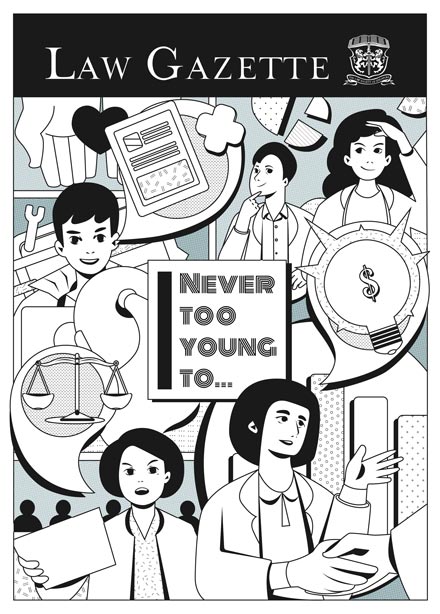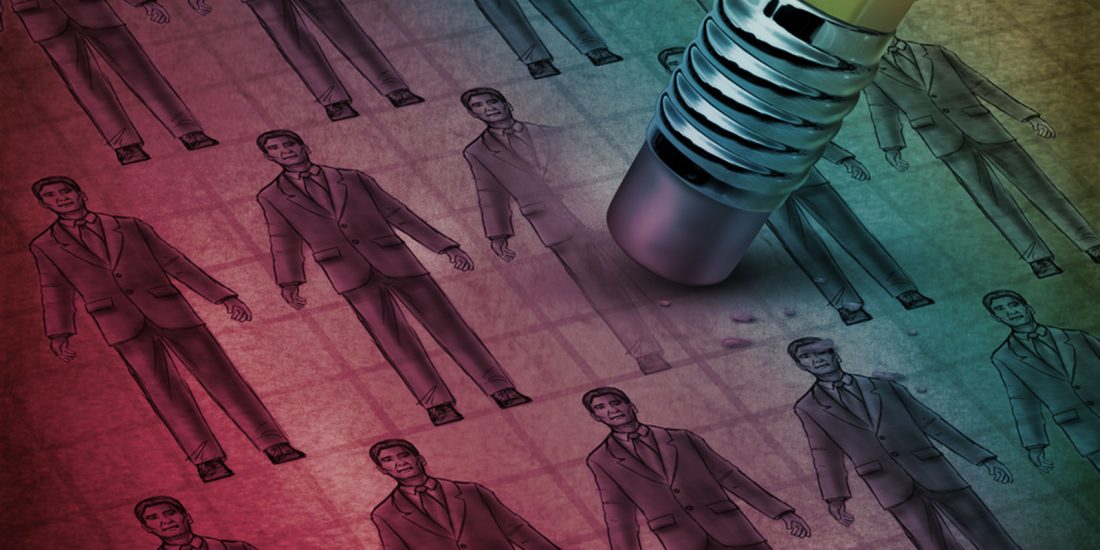
You Are Never Too Young to Embrace Technology
One of the few positive traits consistently assigned to millennials is being “tech-savvy”. And that label is a nebulous one, and has caused many young associates to be asked questions such as “why is the internet so slow” and “how do I recover holiday photos from a reformatted memory card”.
But what does being tech-savvy mean? Is it just being good at using technology? Can lawyers be good at using technology and aren’t lawyers supposed to be technologically backwards?
There have been many outcries and calls for lawyers to embrace technology and, by extension, technology’s more glamorous twin, innovation. Lawyering’s image seems hopelessly entrenched in the Victorian era; unable and unwilling to contemplate how to use technology as disruptive innovation to modulate an S curve and achieve a paradigm shift. The folks in other industries like to compare, and remind lawyers that on a technological comparison, we are better off donning top hats than learning SQL.
But that comparison is not quite fair. The underlying technology to help lawyers was not commercially exploitable until recently. Back then, lawyers didn’t need to do much calculation, graphing, designing or the type of work that computers were great at doing in those days. Of course, the modern word processor and e-mails were of great help to lawyers; however, they are not technology specific to lawyers. Lawyering and technology went on like parallel lines in Euclid’s fifth postulate.
Given the recent developments in computational power and the fact that the entire world is changed by artificial intelligence, there is a strong motivation for lawyers (especially young lawyers) to “embrace technology”. Besides needing to grapple with how law would be shaped by technological developments, clients are demanding that their lawyers work more efficiently. In our world, parallel lines could intersect.
As lawyers, a definitional issue then arises, what does it mean to “embrace technology”? It definitely isn’t just limited to asking lawyers to be good at using technology. I would propose that being tech-savvy and embracing technology means having the skills to navigate and understand technology, and the ability to use them for efficiency gains.
Navigate and Understand
This is where young lawyers shine. The skills needed to navigate technology are largely built through experience. Young lawyers have generally more experience with technology than other generations: the fact that we can navigate purposefully through Facebook, Instagram, and Whatsapp applications on our phone without reaching for the FAQs speaks to that (and perhaps a unified experience courtesy of Facebook, Inc.). Although technological tools can be diverse, young lawyers can definitely pick them up and be good at using them.
Beyond that, technology skills today often build on top of each other. And this creates a way to quickly appreciate how related tools work. If you know how to use Microsoft Word, you should be able to use Google Documents. The same usually goes for software which are designed for use in a particular industry since providers would want to reduce the friction of learning. This is the same for INTELLLEX’s design team: we want to design software which looks and functions intuitively, making it easy for a lawyer to adopt it into his toolbox.
With their familiarity with technology, young lawyers can develop an understanding of technology. This understanding would not come after a quick five-minute googling, but requires devotion and time to learn the basics of a different field. When doing so, the biggest benefit would be to gain a professional understanding of technology. Increasingly, we see many areas where technology is pushing law and regulators. For example, the introduction of blockchain has led to the proliferation of cryptocurrencies, which has led to interest from the retail investor market. Regulators would need to consider if and how their securities regulations would apply to trades in cryptocurrencies; or would more rules be needed given the obscurity of information flow.
Some have taken to call this emerging area as the law of technology. Although if we think about it, this label may just be a convenient label referring to anything novel and has probably been used to encompass different things in different decades.
More properly put, it is actually a case of technology creeping into all law and legal practice. Computer and mobile games are now enticing players to spend real money on micro-transactions for in-game items. How should we deal with cases where virtual in-game items are stolen? The rigorous lawyer may want to analyse this issue fully, and not just stop at the hacking or computer misuse aspect. And on the legal practice front, disputes lawyers have had to deal with electronic discovery for some time, and would have gotten used to statistical sampling techniques. Now, e-discovery applications are deploying predictive coding, and lawyers would have to consider if they should rely on it, and an understanding of artificial intelligence would be beneficial to utilise these new tools properly.
Law needs to be considered in its context; and lawyers need to serve their clients. An understanding of technology can become an understanding of a client’s business, and allow lawyers to develop deep expertise in this area. There are many lawyers who have built up their practice serving clients in the technology space. And that may be a wise decision, given the soaring valuation of such companies.
Efficiency
This is the real reason why any business is interested in introducing technology, isn’t it? While there are costs associated with the adoption of technology in the workplace, the promise of technology has always been to allow us to do our jobs faster and better. And that means communicating more effectively and getting access to more and better information so that our capacity for doing good work increases. Ultimately, we want to be more valuable to our clients, and the law firm certainly hopes to be more valuable than their competitor.
Clients are cracking the whip and demanding that law firms become more efficient. I think there has been an unwritten rule in the past where clients have been acquiescing in picking up the tab for new lawyers’ on-the-job training. When the Great Recession hit, that rule was pushed off the table. Even though there has been a pick-up in the economy, there was really no reason for clients to do that ever again. In 2010, law firms in the United States reported that clients were pressuring them to exclude junior associates from billing on their matters (see http://www.marketwired.com/press-release/joint-alm-practical-law-company-study-law-firms-overhauling-associate-training-1344838.htm).
Increasingly, junior lawyers need to hit the ground running and efficiency matters.
Efficiency is about improving your work process. You can think of yourself as a future partner in a law firm: efficiency is about reducing your costs in order to maximise the total profit derived from your revenue. When lawyers think about efficiency, they think of it as the enemy of revenue and therefore profitability; efficiency is a dirty word spoken of only in hushed tones. Now, this line of thinking would be sensible if this was 1988. However, it is not and we have a market that is rejecting the time costs model.
If your work process is improved, how do you spend the extra time you now have on your hands? An economically-motivated individual can try to get new matters. Although I have not done any empirical studies, I believe that for every matter, there is a tapering point: a point where more time spent will result in diminishing returns in quality and a steep increase in the probability that your client will explode at the bill. The first 10 hours for any matter is easier to collect than the last 10 hours.
So I believe that young lawyers need to start thinking about ways to reduce the costs of inefficient work practices. And the way would be through technology.
Efficiency is why being tech-savvy matters. At the simplest level, knowing how to use Boolean operators in search engines will get you to relevant documents faster. And if you learn how to use Microsoft Excel to manipulate data, you will realise how quickly you can change an entire uppercase sentence to lowercase. At INTELLLEX, we encourage young lawyers to build and contribute to a knowledge management system so that the wheels don’t have to be reinvented every day.
Of course, you are not owners of a firm yet. Your partner will decide how work is done at the law firm. Nevertheless, I have seen a lot of young lawyers being enthusiastic about working differently and better; older lawyers tend to be more occupied with established practices. As more young lawyers chat amongst themselves, the older lawyers are also starting to take note.
Young lawyers can seek their firm’s support in improving efficiency. Instead of fixing problems with the internet access, law firms should realise that young lawyers have the ability to be significantly more efficient than their non tech-savvy colleagues. A junior who is thinking about efficiency is thinking about the future for the firm. After all, neither would have much of a future in the new legal market unless efficiency is improved.

This article is part of the August 2018 Special Issue produced for the newly called lawyers of Mass Call 2018.






